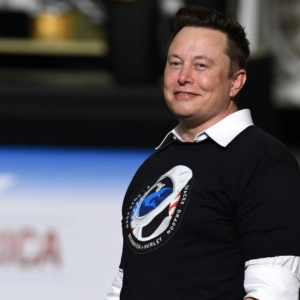Elon Musk Announces All-New Carbon-Wrapped Motor Production Plan – What Happened?
Elon Musk, the visionary behind Tesla and SpaceX, has once again stirred excitement in the tech and automotive industries with his latest announcement: the introduction of an all-new carbon-wrapped motor for Tesla vehicles. This groundbreaking move promises to reshape the way electric vehicles (EVs) are powered and could potentially set a new standard in the industry. But what exactly does this new motor mean for the future of electric cars and Tesla’s competitive edge?
The Concept of the Carbon-Wrapped Motor
At the heart of Musk’s announcement is a new type of motor that uses carbon-wrapping technology to enhance performance and efficiency. While details are still emerging, the concept behind this motor involves wrapping the motor’s components in carbon fibers, which are known for their exceptional strength, light weight, and thermal conductivity properties. Carbon fiber is commonly used in aerospace and high-performance industries because of its ability to withstand extreme conditions while being lighter than traditional metal components.
The idea of integrating carbon fiber into electric motor production could have significant implications for Tesla vehicles. By using carbon-wrapped motors, Tesla aims to improve the overall efficiency and performance of its cars, making them lighter, more powerful, and more energy-efficient.
What Does This Mean for Tesla Vehicles?
1. Improved Efficiency and Performance
One of the primary advantages of carbon-wrapped motors is their potential to reduce the overall weight of the vehicle. A lighter motor means less energy is required to propel the car, which could translate into increased range on a single charge. Tesla has long been at the forefront of EV range, but this new motor could take that even further, potentially pushing the boundaries of what’s possible in electric vehicle performance.
In addition to weight reduction, carbon fiber’s ability to dissipate heat more effectively than metals could allow the new motor to run cooler, improving its efficiency and longevity. This means Tesla owners may experience better performance, faster acceleration, and enhanced reliability over time.
2. Enhanced Durability and Longevity
Carbon fibers are known for their durability, and by using them in the motor’s construction, Tesla may be able to create a motor that lasts longer and requires less maintenance. The ability of carbon-wrapped motors to resist wear and tear in extreme temperatures or under high-stress conditions could make them more reliable than traditional motors, which often require periodic maintenance to address issues like overheating or component degradation.
3. Faster Charging and Higher Power Density
Another potential benefit of carbon-wrapped motors is an improvement in power density, meaning the motor could generate more power relative to its size and weight. This could result in better acceleration and overall performance without adding extra bulk or compromising efficiency. A more powerful motor with higher power density could also lead to faster charging times, as the vehicle’s electrical system would be better equipped to handle energy input.
The Production Plan
Musk’s announcement also includes details about Tesla’s plan to ramp up production of these new carbon-wrapped motors. Tesla is known for its ambitious production targets, and this new motor could be a key part of the company’s strategy to stay ahead in the EV market. Production of these motors is expected to begin in the coming months, with plans to incorporate them into future Tesla models, including the upcoming refreshed versions of the Model S, Model X, and Model 3.
Tesla’s new motor will not only help the company improve the performance and efficiency of its vehicles but could also play a pivotal role in reducing manufacturing costs. Carbon fiber materials have traditionally been expensive to produce, but Tesla’s mastery of large-scale manufacturing could allow the company to bring down costs, making carbon-wrapped motors more affordable for mass production.
Impact on the EV Industry
The introduction of the carbon-wrapped motor could set a new standard for electric vehicles across the industry. As more automakers strive to make their own electric cars more efficient and powerful, Tesla’s innovation in motor technology may force competitors to follow suit or risk being left behind.
Moreover, the new motor could have wider implications for other industries, including aviation and renewable energy. As the technology evolves, it could open up new possibilities for lightweight, high-performance systems in other applications, such as electric aircraft or renewable energy generators.
The Road Ahead
Elon Musk’s announcement of the carbon-wrapped motor marks another step toward Tesla’s ultimate goal of accelerating the world’s transition to sustainable energy. While the full scope of this technology’s impact remains to be seen, it’s clear that Musk is once again aiming to disrupt the status quo with a groundbreaking innovation. If successful, this new motor could cement Tesla’s position as the leader in electric vehicle technology and further solidify Musk’s reputation as one of the most influential pioneers in the automotive world.
As Tesla moves forward with production plans, the EV community—and the world—will be watching closely to see if the carbon-wrapped motor lives up to the lofty expectations set by Musk. For now, it’s clear that Tesla is gearing up to change the electric vehicle landscape once again, and this latest development promises to be another major leap in the ongoing EV revolution.



